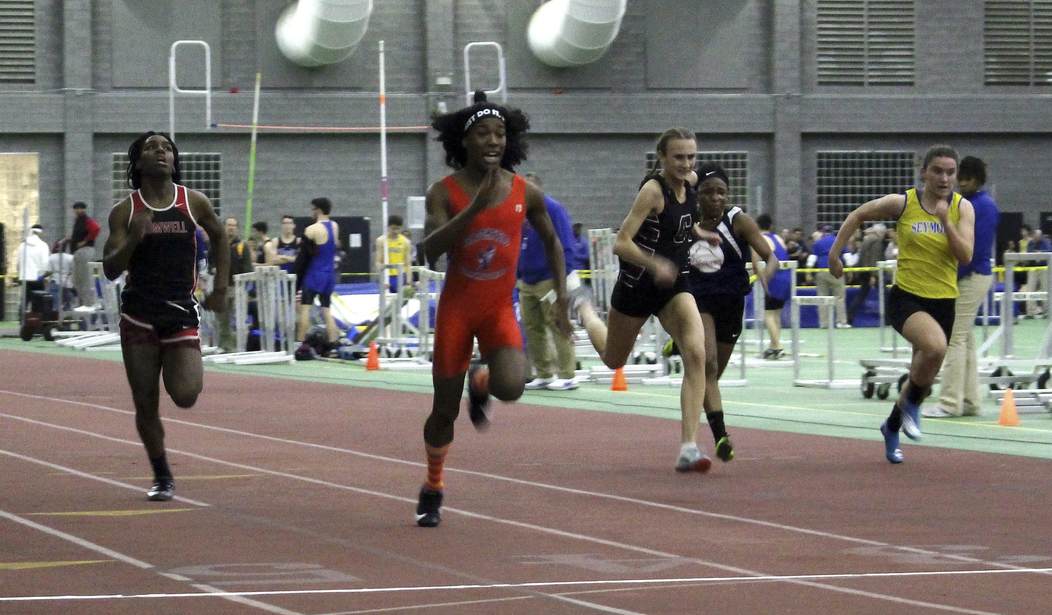On Wednesday, the U.S. Department of Education announced its Office of Civil Rights (OCR) would investigate whether or not a Connecticut high school athletics policy allowing males who identify as transgender to compete in women’s sports involves discrimination against women. The office will consider whether the policy violates Title IX, which prohibits discrimination. Three concerned parents filed a complaint on behalf of their daughters, who lost competitions to males.
“Female athletes deserve to compete on a level playing field. Forcing them to compete against boys makes them spectators in their own sports, which is grossly unfair and destroys their athletic opportunities,” Christiana Holcomb, legal counsel at Alliance Defending Freedom (ADF), the law firm representing the parents, said in a statement.
“For that reason, we are pleased that OCR has agreed to investigate. Title IX is a federal law that was designed to eliminate discrimination against women in education and athletics, and women fought long and hard to earn the equal athletic opportunities that Title IX provides. Allowing boys to compete in girls’ sports reverses nearly 50 years of advances for women,” Holcomb added.
Teen males have beaten girls in Connecticut track for years. In 2017, freshman male Andraya Yearwood defeated girls who were older than him, taking two state championships. This year, Yearwood and another biological male took first and second place.
Following such results, ADF asked the DOE’s OCR to open an investigation. The complaint described how one mid-level male sophomore athlete failed to advance in boy’s indoor track events in the Winter 2018 season — and then began competing in the girls’ events in the Spring 2018 outdoor track season. That student “deprived girls of opportunities to advance and participate in state-level competition” in every statewide elimination event the student competed in. That student now holds more than 10 statewide records that once belonged to 10 different girls.
One of the girls deprived of genuine opportunities to compete, Selina Soule, spoke out about the case. Speaking of Yearwood, she said, “I saw that she was so far ahead of everyone else and I thought to myself that this wasn’t right. Something is going on here. And later I found out that that athlete was a transgender female.”
“No matter how hard we try and how hard we train, they will beat us, no matter what,” Soule said.
“Selina and her fellow female athletes train countless hours in hope of the personal satisfaction of victory, an opportunity to participate in state and regional meets, or a chance at a college scholarship,” Holcomb explained. “But girls competing against boys know the outcome before the race even starts. Boys will always have physical advantages over girls; that’s the reason we have women’s sports and the reason we look forward to OCR’s investigation.”
OCR will not just investigate whether or not the policy discriminates against girls. It will also consider retaliation claims. The complaint alleged that the Connecticut Interscholastic Athletic Conference (CIAC) retaliated against one of the girls for advocating against the transgender policy. The complaint also claimed that the school district retaliated against another student when the student’s track coach removed her from a relay team and denied her the position of team captain.
A recent study published in The Journal of Medical Ethics concluded that allowing biological males to compete in women’s sports creates an “intolerable unfairness.” The International Olympic Committee (IOC) ruled in 2015 that males can compete in the women’s division if their testosterone is held below a certain level, 10 mol/L. This is significantly higher than the natural testosterone range among biological women. “Science demonstrates that high testosterone and other male physiology provides a performance advantage in sport suggesting that transwomen retain some of that advantage,” the study found.
Yet testosterone is far from the sole reason males have an unfair advantage over females in women’s sports. Differences between male and female development begin in the womb and continue throughout life. As Duke Law School professor Doriane Lambelet Coleman testified, if the pro-transgender Equality Act allowed biological men to compete in women’s sports, “the very best women in the world would lose to literally thousands of boys and men, including thousands who would be considered second-tier.”
Most Americans oppose allowing transgender athletes to compete on opposite-sex teams, according to a Rasmussen poll this past June. Only 28 percent support allowing this competition, while 54 percent oppose it.
Follow Tyler O’Neil, the author of this article, on Twitter at @Tyler2ONeil.









Join the conversation as a VIP Member